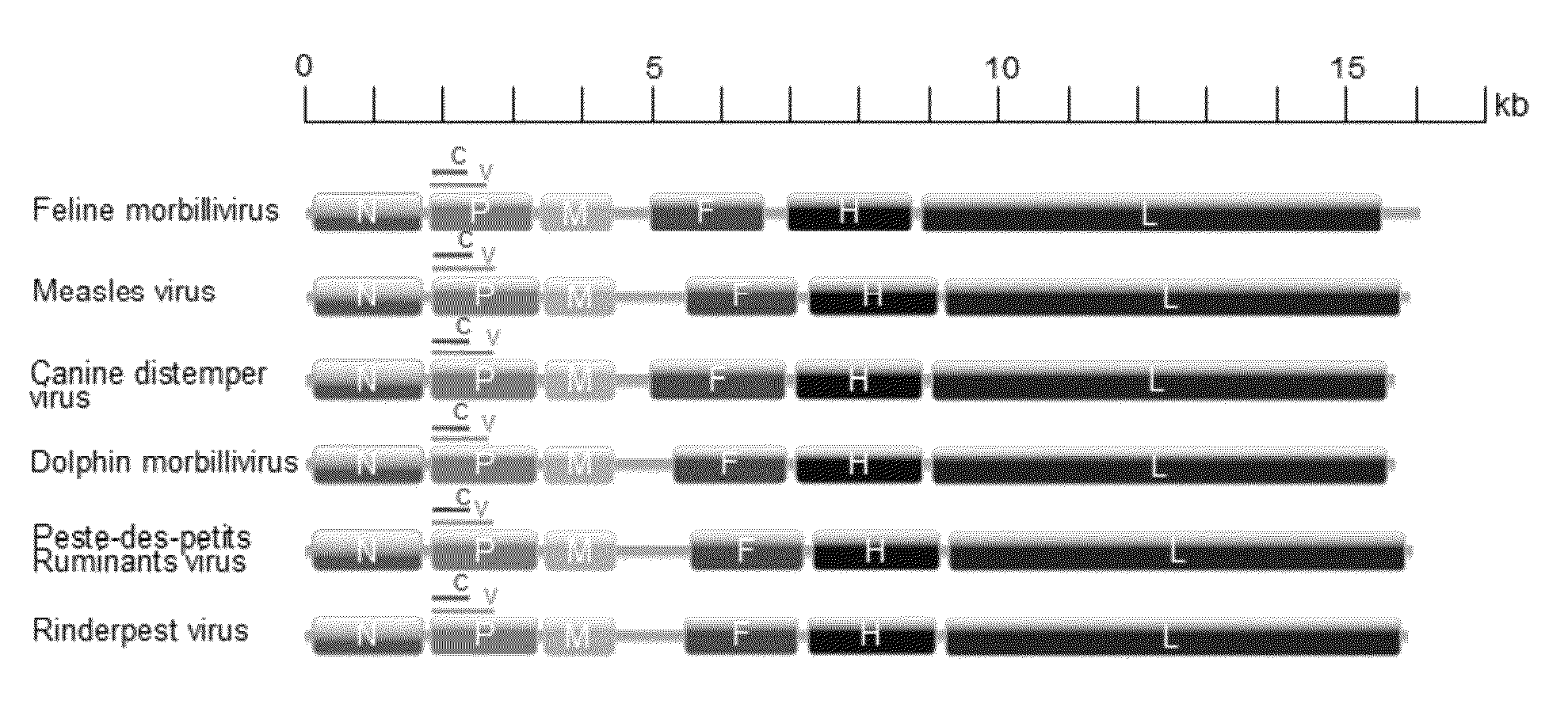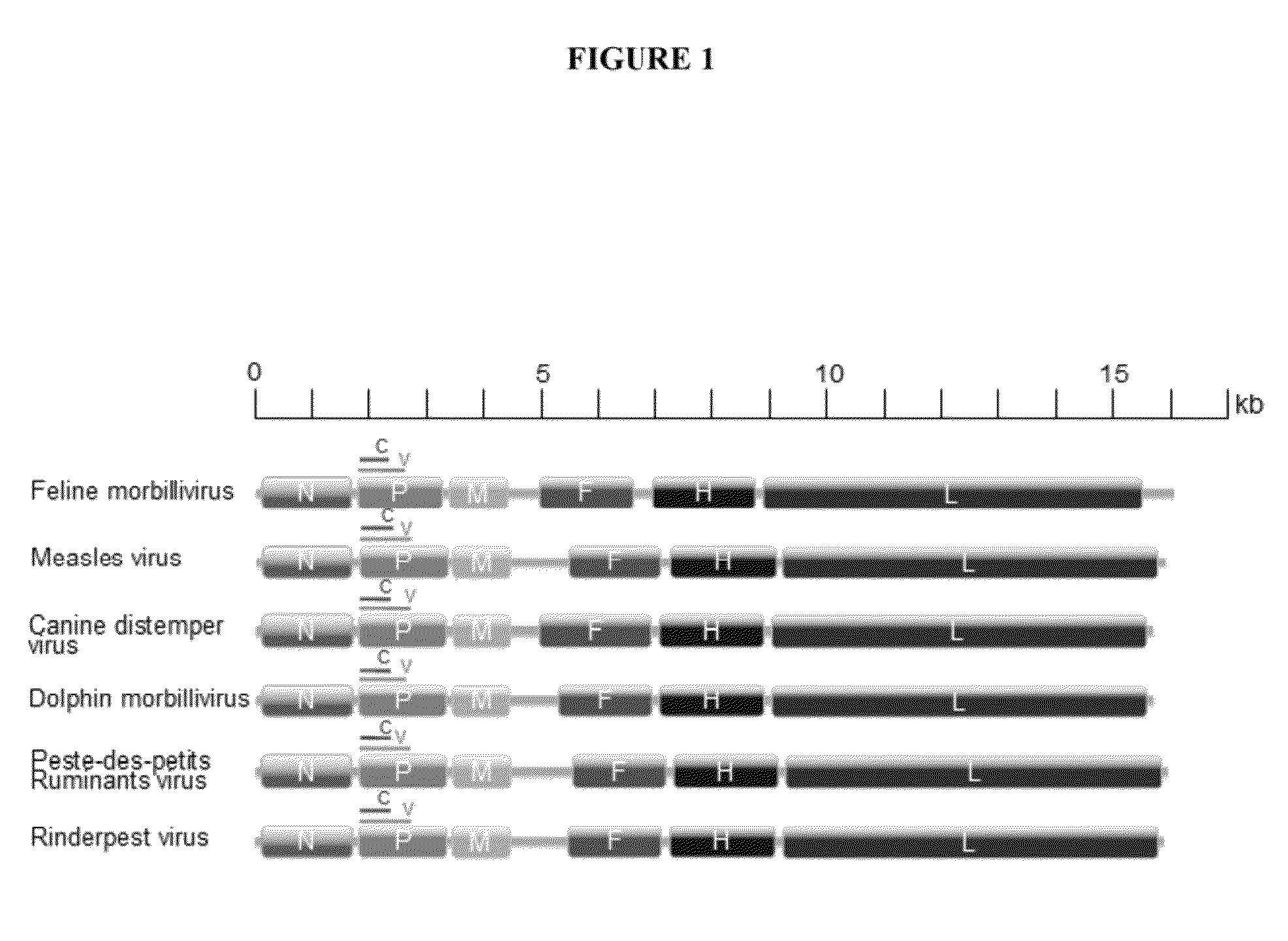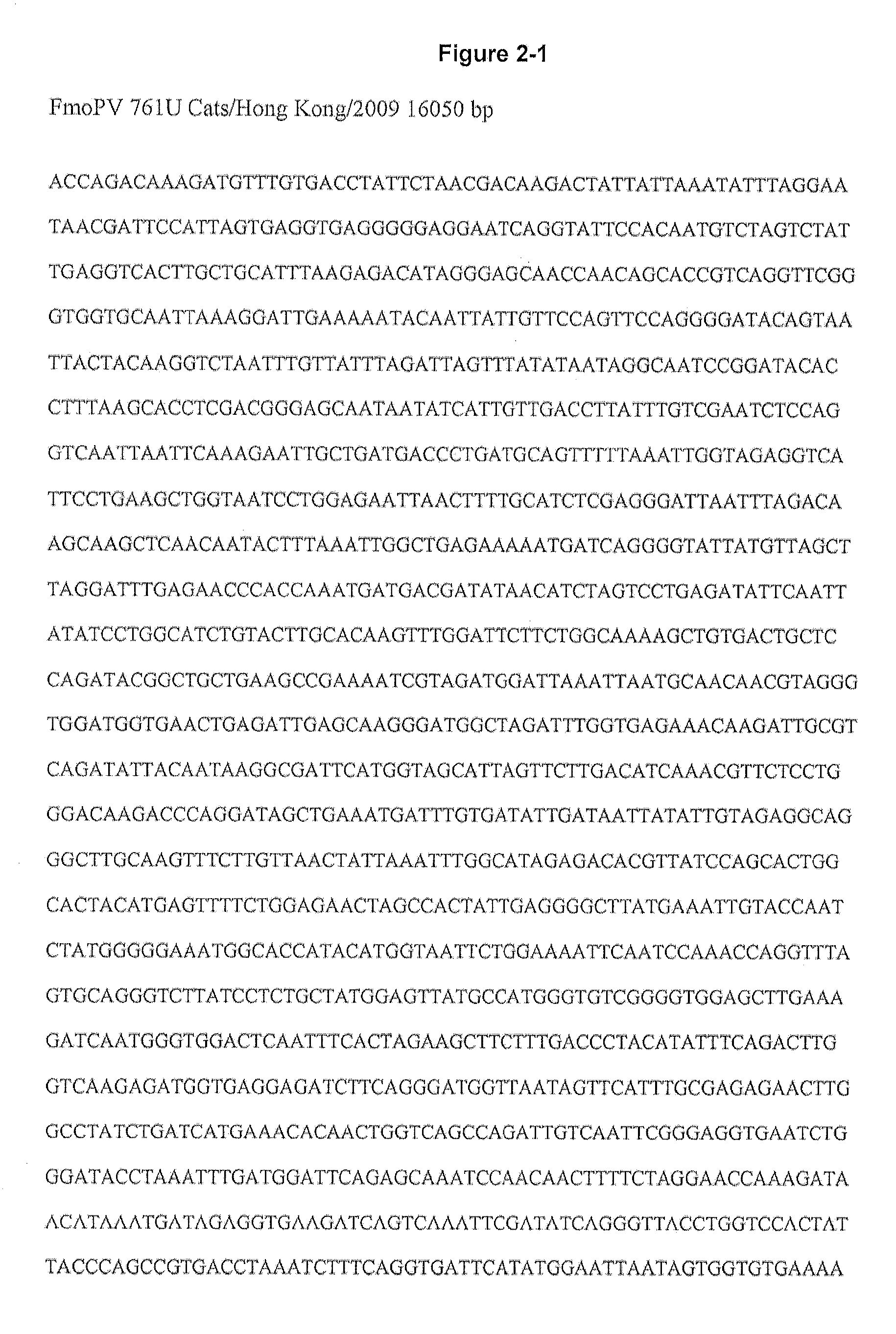Feline morbillivirus and uses thereof
a virus and feline technology, applied in the field of feline morbillivirus, can solve the problems of large burden of tin-related diseases, achieve the effects of reducing or improving the severity of the disease, preventing the progression of the disease, and reducing the duration of the diseas
- Summary
- Abstract
- Description
- Claims
- Application Information
AI Technical Summary
Benefits of technology
Problems solved by technology
Method used
Image
Examples
example 1
6.1 Example 1
[0167]The Agriculture Fisheries and Conservation Department (AFCD), Hong Kong provided samples collected from 457 stray cats captured from various locations in Hong Kong over a 2-year period (March 2009 to February 2011) as part of a surveillance program. Tracheal and rectal swabs, urine and blood were collected using procedures described previously (23). In addition, oral and rectal swabs from 16 diseased cats from mainland China were also collected. The study was approved by the Committee on the Use of Live Animals in Teaching and Research, The University of Hong Kong. Samples were collected immediately after euthanasia as routine policies for disposal of locally captured stray cats.
Necropsies of FmoPV-Infected Stray Cats
[0168]To identify possible diseases associated with FmoPV, necropsies were performed on two euthanized stray cats positive for FmoPV by RT-PCR. Tissue samples were collected from the lungs; brain; heart; prescaspular, retropharyngeal,...
example 2
6.2 Example 2
RT-PCR of L Gene of Morbilliviruses and DNA Sequencing
[0170]Viral RNA was extracted from tracheal and rectal swabs, urine and blood using EZ1 Virus Mini Kit (QIAgen) and from tissue samples using QIAamp Viral RNA Mini Kit (QIAgen). Morbillivirus detection was performed by amplifying a 155-bp fragment of L gene of morbilliviruses using conserved primers (LPW12490 5′-CAGAGACTTAATGAAATTTATGG-3′ (SEQ ID NO: 11) and LPW12491 5′-CCACCCATCGGGTACTT-3′ (SEQ ID NO: 12)) designed by multiple alignments of available L gene sequences of morbilliviruses. Reverse transcription, PCR and sequencing were performed according to our previous publications (13,14).
example 3
6.3 Example 3
Real-Time Quantitative RT-PCR
[0171]Real-time quantitative RT-PCR to detect L gene of FmoPV was performed on the 56 positive samples using LightCyler FastStart DNA Master SYBR Green I Mix reagent kit (Roche), with primers LPW12490 and LPW12491. Complementary DNA (cDNA) was amplified by LightCycler 2.0 (Roche) with 20-μl reaction mixtures containing FastStart DNA Master SYBR Green I Mix reagent kit (Roche), 2 μl of cDNA, 4 mmol / L MgCl2, and 0.5 mmol / l primers at 95° C. for 10 min, followed by 50 cycles of 95° C. for 10 s, 60° C. for 5 s and 72° C. for 8 s. A plasmid containing the target sequence was used for generating the standard curves.
[0172]RT-PCR for a 155-bp fragment in the L gene of morbilliviruses was positive in samples from 56 (12.3%) cats from Hong Kong, including 53 urine, 4 rectal swabs and 1 blood specimens. For the 16 diseased cats from mainland China, one (6.25%) cat was RT-PCR positive in both its oral and rectal swabs. Real-time quantitative RT-PCR show...
PUM
| Property | Measurement | Unit |
|---|---|---|
| temperature | aaaaa | aaaaa |
| body weight | aaaaa | aaaaa |
| body weight | aaaaa | aaaaa |
Abstract
Description
Claims
Application Information
 Login to View More
Login to View More - R&D
- Intellectual Property
- Life Sciences
- Materials
- Tech Scout
- Unparalleled Data Quality
- Higher Quality Content
- 60% Fewer Hallucinations
Browse by: Latest US Patents, China's latest patents, Technical Efficacy Thesaurus, Application Domain, Technology Topic, Popular Technical Reports.
© 2025 PatSnap. All rights reserved.Legal|Privacy policy|Modern Slavery Act Transparency Statement|Sitemap|About US| Contact US: help@patsnap.com



